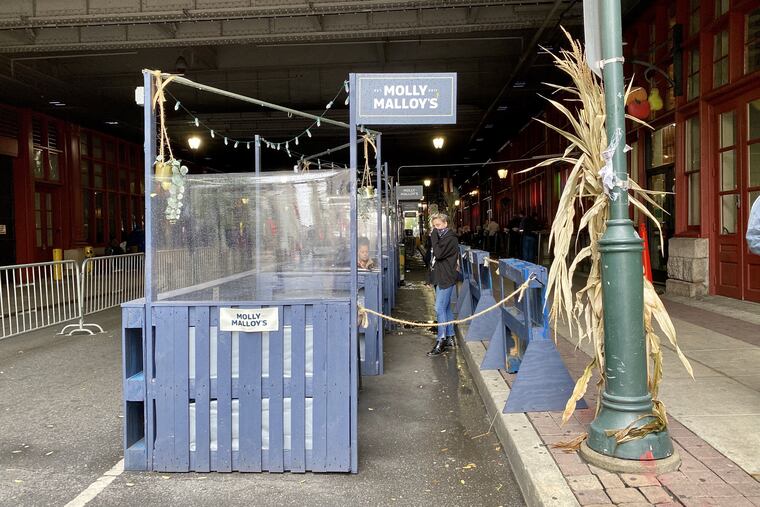Philadelphia issues guidelines for winterizing outdoor restaurants
To qualify as "outdoor," a structure may have no more than two walls. Kerosene heaters are not allowed.

Restaurants have embraced outdoor-dining areas during the pandemic, adding televisions outside and moving tables and landscaping to the street. Now, with fall leading into winter, the city on Thursday issued guidelines for winterizing these spaces.
City officials said they wanted restaurants to operate to the best of their ability while maintaining health and safety standards.
Among the rules:
Prefabricated tents and canopies with pliable material overhead can be put up without a building permit. A building permit must be obtained before constructing a custom-built shelter with a roof and/or sides more than 48 inches high.
A tent permit and inspection (a $103 fee) are required for heated tents and all tents larger than 400 square feet.
Heaters must be manufactured for outdoor use, and installed at least three feet (electric) or five feet (propane, natural gas) from combustible materials. Heaters under tents are permitted via forced air ducts. Kerosene heaters are not allowed.
Outdoor space enclosed by three or more walls and a roof will be subject to public health requirements for indoor dining, including the 50% occupancy restriction.
All other rules remain in place, including six-foot separation between chair backs and six-foot-wide paths for pedestrians.
The public solidly favors outdoor dining over indoor dining. An Inquirer survey of 1,115 people found that nearly 80% of respondents were not comfortable with indoor dining, while more than 90% were comfortable with outdoor dining. Most respondents said that heaters, fire pits, and warm drinks would encourage them to keep up outdoor dining, even in colder months.
» READ MORE: As weather cools down, restaurants hope customers will bundle up.
Since June 15 the city has issued 735 temporary approvals for sidewalk cafes, streeteries in the curb lane, and expansions onto privately owned parking areas and vacant lots. The city also allows periodic street closures. Temporary approvals, currently in force through Dec. 31 would remain valid through Dec. 31, 2021, under a bill now before City Council and supported by the administration; extensions onto neighboring property cannot be automatically extended.